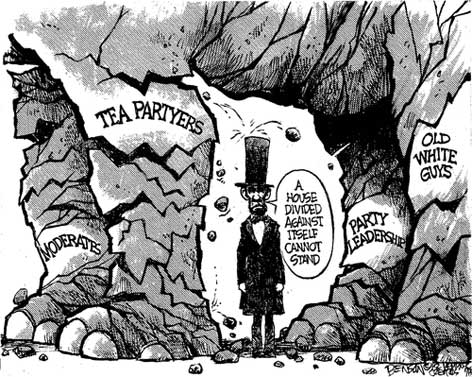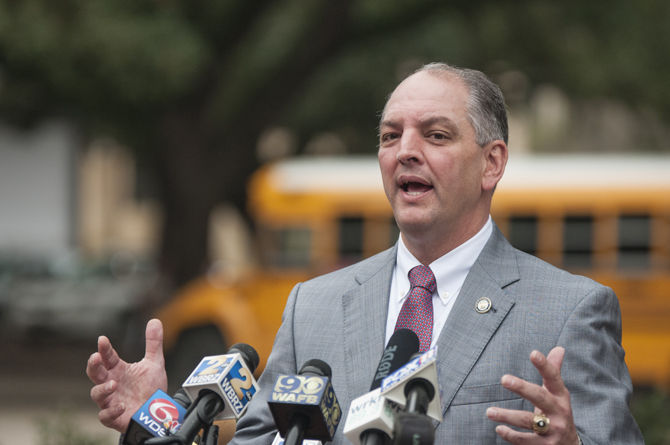By: Kelsey Thomas
At a time when most voters are focused on the presidential election, “lesser” elections tend to fall through the cracks. Never fear, dear reader! We are here to provide you with some insight into an election that you will likely find on your ballot but not your television screen. The congressional race in Georgia’s 12th District has narrowed down to two candidates: incumbent Democrat John Barrow and Republican challenger Lee Anderson. Although this race hasn’t received much attention from the national media, the national parties are not taking it so lightly. Barrow is one of ten incumbent Democrats being heavily targeted by the National Republican Congressional Committee. A defeat for Barrow, the last white Democratic congressman from the Deep South, could be the definitive end for so-called Blue Dog Coalition.
John Barrow
Congressman John Barrow is an alumnus of the University of Georgia and Harvard Law School. He worked as a private practice attorney until his 1990 election to the City Council of Athens, Georgia.
In 2004, Barrow defeated incumbent Max Burns 52-48% to win the 12th Congressional District seat. Mid-decade redistricting by Republicans in the Georgia Legislature put Barrow’s Athens home into the 10th District, a seat held at the time by Republican Charlie Norwood. Barrow moved to Savannah to remain in the 12th District, where he again faced Max Burns in the 2006 election. Coming out of the race with an 824-vote lead, the narrowest victory of any Democratic incumbent that year, many believed that Barrow was vulnerable. However, he went on to defeat Republicans John Stone (66-34%) and Ray McKinney (57-43%) in 2008 and 2010, respectively.
Following more Republican-controlled redistricting in 2011, Barrow is now fighting for a district that leans Republican. To counteract this, Congressman Barrow has used recent advertisements to paint him as independent from President Barack Obama and the two-party system, seemingly to generate Republican crossover votes. Party loyalties and crossover voting will likely be important to Barrow, who became Georgia’s lone white Democratic congressman following Jim Marshall’s defeat in 2010.
Barrow has received endorsements from the AFL-CIO, the U.S. Chamber of Commerce, the National Rifle Association, and the Veterans of Foreign Wars. He has also given his tepid endorsement to President Obama, who he claimed to agree with “85 percent of the time” in a fundraising letter. Opponent Lee Anderson has attempted to tie Barrow closer to the president. In a statement from spokesman Ryan Mahoney, Anderson’s campaign rejected invitations to debate Barrow until he told the public why he supports President Obama. In order to win this race, Barrow will need to convince a largely conservative, rural voter base that he has and will continue to break from his party.
This strategy comes into play when one examines Barrow’s issue stances and past votes. In the House, Barrow voted against the Affordable Care Act, one of only 34 Democrats to do so. However, he did not join with the Republicans in voting to repeal the legislation, which resulted in several Republican candidates linking him to President Obama during the primary. On campaign his website, Barrow notes that he has fought for jobs by supporting the Keystone XL Pipeline, as well as co-sponsoring two Balanced Budget Amendments to control government spending. The National Right to Life organization rates Barrow at 0%, indicating a strong pro-choice record. Of the significant legislation proposed during the 112th Congress, Barrow has co-sponsored bills such as the Audit the Fed Bill (Federal Reserve Transparency Act of 2012) and SOPA (Stop Online Piracy Act).
Lee Anderson
Columbia County native Lee Anderson is an alumnus of Abraham Baldwin Agricultural College and Brewton Parker College. After college, Anderson began working on his family’s farm, which he continues to run as a full-time business.
In 2008, Anderson ran to replace House Representative Barry Fleming, who vacated his seat for an unsuccessful run for U.S. Congress. Anderson won the Republican primary for what was then Georgia House District 117 with 69% of the vote, ultimately winning in an unopposed general election. He was re-elected in another unopposed race in 2010. In 2012, Anderson entered a widely contested Republican primary in the 12th Congressional District. The race ended with no candidate taking a majority, sending Anderson and Augusta businessman Rick Allen into a runoff. Ultimately, Anderson won the runoff by a margin of only 159 votes.
Anderson has received the endorsement of Georgia Right to Life, along with the Tea Party Express. Anderson’s strategy seems to be playing on Georgian’s resentment of incumbents, using advertisements to paint himself as a political outsider. Anderson will also be looking to limit Republican crossover voting, as a district that leans toward Romney in the presidential election could result in a coattail effect, helping to sweep other Republicans into office. John Barrow’s advertisements, however, seem to highlight Anderson’s political experience. In one such ad, Barrow reminds Georgians about several votes Anderson made in the Georgia Legislature, such as the hospital bed tax. In order to win, Anderson will need to combat Barrow’s image of him, while simultaneously overcoming any incumbent advantage that might exist for Barrow.
On his campaign website, Lee Anderson lists balancing the federal budget, repealing and replacing ObamaCare, the sanctity of life, and term limits as being among his priority issues. In the latest session of the Georgia House, Anderson voted in favor of drug testing for welfare recipients (HR 861), the charter school amendment (HR 1162), and the Immigration Enforcement Act (HB 87).
Predictions
How this race plays out is anyone’s guess. The New York Times ranks the 12th District as one of 24 potential toss-ups. This means that the Barrow-Anderson race is one of only two toss-up elections in the South, excluding Florida. An internal poll from Lee Anderson’s campaign has Anderson leading 44-43%, with 13% undecided. The Rothenberg Political Report ranks the election as a toss-up that leans Republican, predicting a win for Anderson by 2.2%. If he is able to play on the growing enthusiasm gap favoring Mitt Romney, Lee Anderson may experience high enough Republican turnout to ensure his victory. However, he will face an uphill battle against a growing list of Barrow endorsements, PAC dollars, and potential crossover voters. For his part, Barrow is up against a district redrawn to skew against him, meaning that the days of the Blue Dog Democrat could be numbered.

